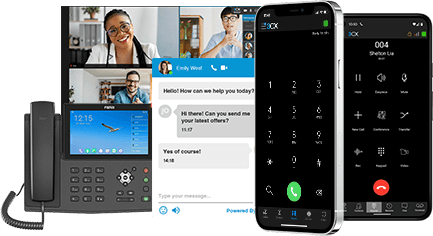What is VPN?
A VPN is a Virtual Private Network that is used to connect users of an established network with another. It is Virtual, as it is not a physical connection and Private, as it is closed. VPNs are used in most modern companies, universities and other organizations, because it simplifies workflows by connecting groups and individuals to the same network. A VPN is most often likened to a tunnel. This metaphor refers to it being a secure and encrypted connection between a (physically) external computer or phone and a server, while the Internet is reduced to the function similar to an extension cord. VPNs are also important for VoIP telephony and essential to secure phone calls with AskoziaPBX.
Advantages of Virtual Private Networks for IP telephony
VPNs are most commonly used to connect a home office or a local branch to the company’s network and therefore with the IP PBX that is already in place. This has two main advantages: Firstly, the connection is encrypted which also protects the conversations over this connection. Secondly, calls within the company are free of charge, because the connection is established via Internet. Some may think that it is too much of a hassle to establish a VPN for an IP phone system, because it is possible to just use the Internet connection and port forwarding to direct communication requests. However, establishing open ports is similar to installing an alarm system (your fire wall), just to leave the front door open. A virtual private network avoids unnecessary threats to security.
IP Telephony with VPN
The easiest way to avoid a range of threats is a VPN. It not only secures communication against outsiders, it also erases possible routing problems that come from connecting different networks. For example, one-way-audio can occur when Alice calls her company from the home office via Internet. The audio sent by Alice has the public IP address on it, yet not the internal of the device itself. If Bob answers on a company phone, his audio packages are sent into limbo, because his network does not know Alice’s address. This can be compared to an office which has one public phone number and a range of extensions. If Bob makes an outgoing call to Alice, she will see his phone number, yet upon returning the call, she won’t be able to directly reach him. In this analogy, the public phone number is the public IP address and Bob’s individual extension is his local IP. This frustrating problem has an incredibly easy solution: Installing a VPN, because then employees are in the same network.
Why Combine AskoziaPBX with VPN?
When including external phones a Virtual Private Network is highly advisable for security, but has many more advantages. For example, it is necessary for interconnecting IP PBXs. Interconnection is a great way to save costs and make employees working in different locations come closer together. VPNs ensure that you can benefit from all the advantages of VoIP telephony like flexibility, cost-efficiency and security. It further enables you to make use of our auto-provisioning service, which saves a lot of time and resources. Auto-provisioning allows a centralized configuration of your devices, so single phones don’t have to be configured and updated manually. This advantage may not seem so striking if there are only few extensions to the PBS, however, manual configuration quickly becomes a dire task.
Common Questions about IP Phone Systems, PBX and VoIP
- Best practices for secure VoIP telephony
- Connect multiple PBXs and IP phone systems
- Firewall for VoIP PBX
- How can I save energy with Green VoIP and my IP PBX?
- How to do call recording with your IP PBX
- Inhouse vs. Hosted PBX
- IP Door Intercom Systems
- Medical Office PBX
- PBX for Law Firms
- Smart Housing and public announcements via VoIP
- VoIP Telephony Glossary
- What are SIP or VoIP phones?
- What do FXS and FXO mean?
- What is a PBX Phone System?
- What is a softphone?
- What is a voicemail system?
- What is BLF?
- What is a Call Flow?
- What is Computer Telephony Integration (CTI)?
- What is PRI?
- What is SIP Trunking?
- What is SIP?
- What is SIPS and SRTP?
- What is VPN?




